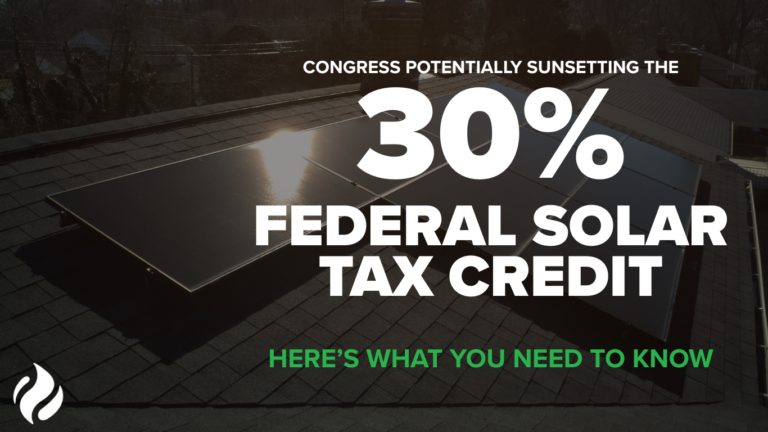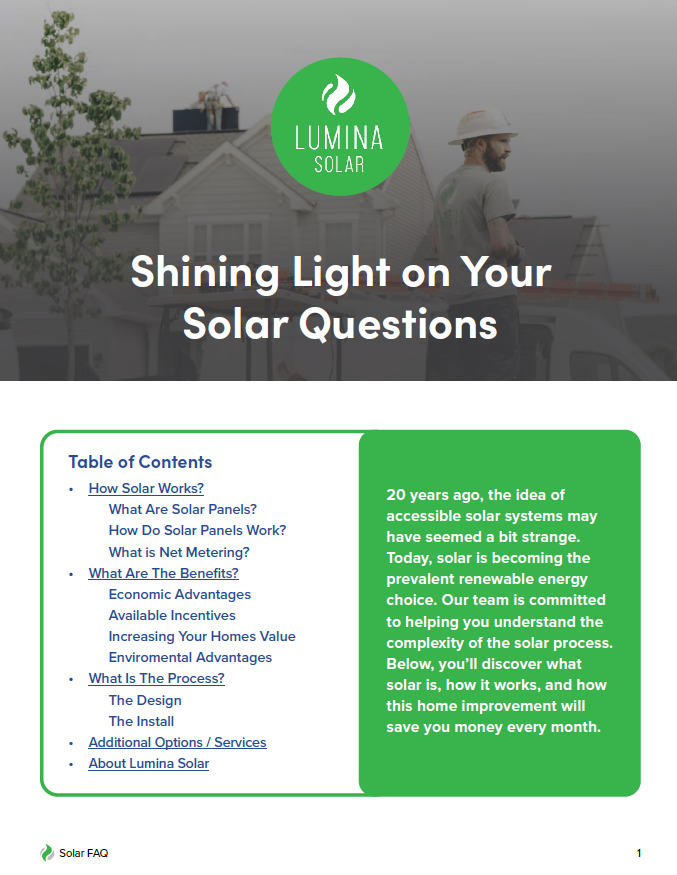It comes as no surprise that weather can have an effect on a photovoltaic solar panel system. What most people don’t know is how durable solar panels are in withstanding even the harshest weather and their ability to continue generating electricity even in adverse weather conditions. While poor weather conditions can affect efficiency, only in extremely rare cases will it damage the solar panels. Today, we will be shedding light on how the weather actually affects solar panels in York PA.
Common Weather Patterns
To start, it is a good idea to gain an understanding of how common weather conditions will affect your solar panel system. These conditions range in commonality when referring to York PA, but it is still beneficial to know what your solar panels can withstand and how to deal with it.
Rain
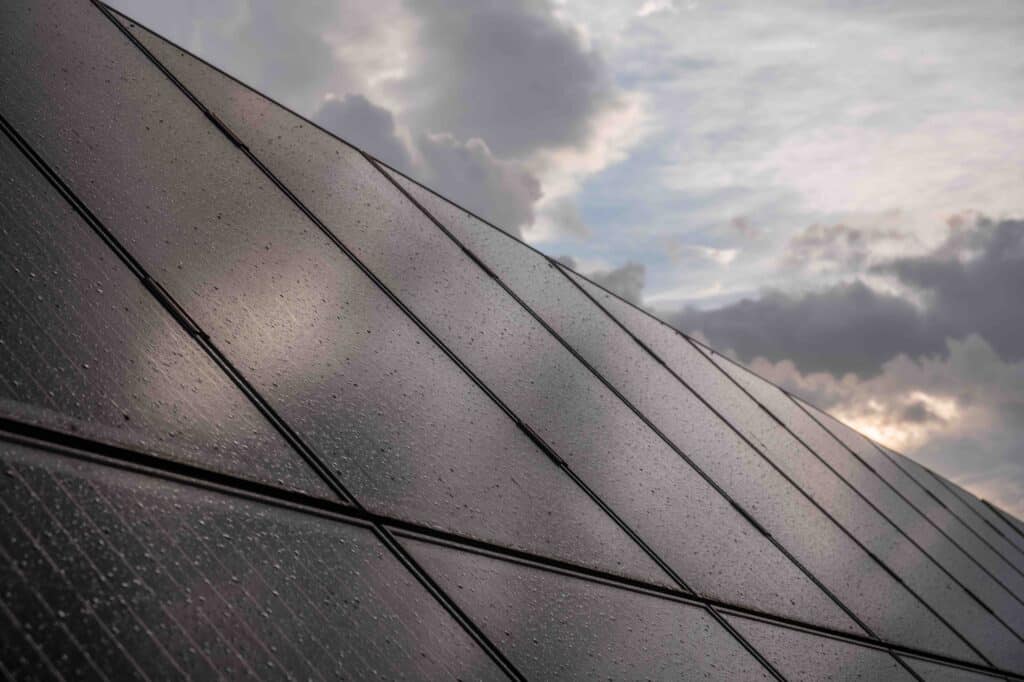
Rain is the most common weather occurrence and is no stranger to solar panels in York PA. Naturally, solar panels are designed to withstand inclement weather with rain being no exception. The only adverse effect that rain causes are cloud coverage, which solar panels are typically still able to generate energy from at a lower efficiency rate. In some cases, rain can be beneficial to a solar panel’s efficiency due to its ability to wash away a layer of dust or debris that has accumulated on the surface of the panels.
Clouds and Fog
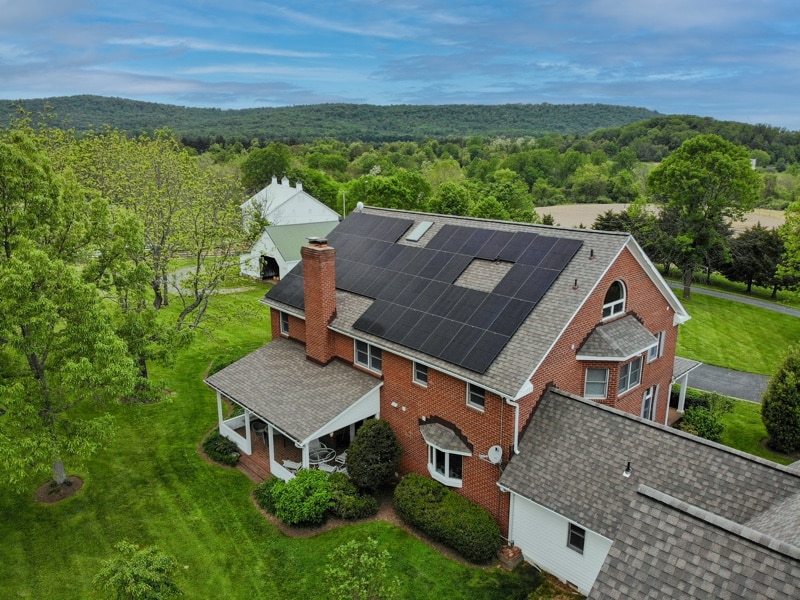
For solar panels to generate electricity, the sky does not need to be perfectly clear. Generally, only thick, dark rain clouds will cause a noticeable drop in efficiency. When a large rain cloud is overhead, solar panels will still regularly produce at a 70% efficiency rate. Like getting sunburnt on a cloudy day, the sun’s rays are still able to penetrate through the clouds and onto your solar panels.
Lightning
Without a general understanding of how solar panels are electrically configured, one may be led to believe that a lightning strike would wreak havoc on their solar panels. While they are subject to voltage surges, your solar panel system should be correctly grounded to avoid this problem. In addition to the grounding, there are also lightning protection devices available to completely avoid a devastating lightning strike. While a direct hit could cause a voltage surge, lightning strikes are thankfully, extremely rare.
Snow
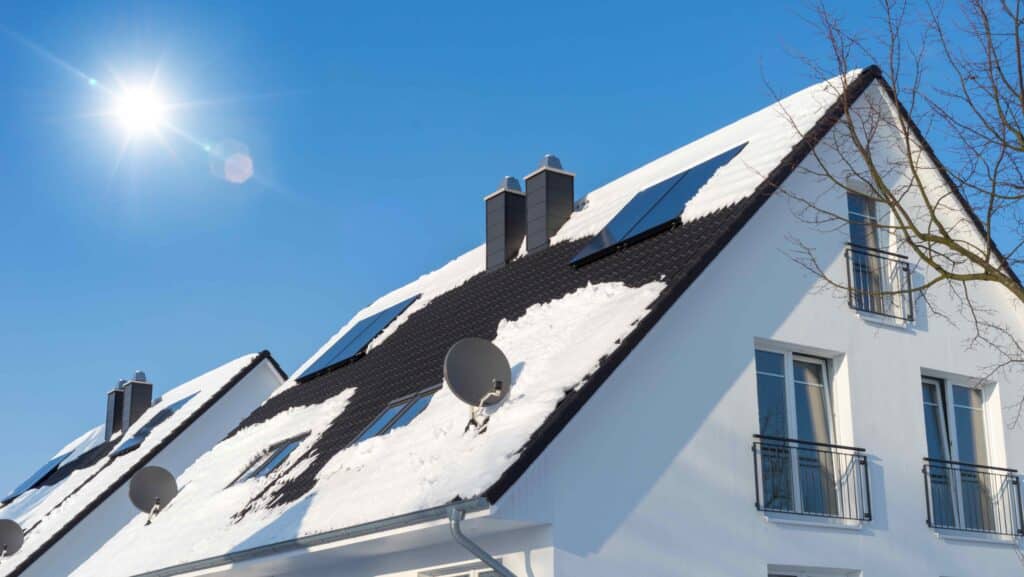
It is a common misconception that heavy snowfall will cause a solar panel to collapse. While a layer of snow on a solar panel will prevent the sun’s rays from reaching the photovoltaic cells, the weight of the snow will not cause the solar panels any damage. With solar panels having a smooth, flat surface, it is common for the snow to slide off or melt in the sun.
Hail
At first thought, hail would destroy a solar panel, right? Actually, solar panels are built to withstand hail, even when it is traveling at a high velocity. In many cases, durable solar panels have actually protected the rest of the roof from damage. Solar panels are designed to withstand weather conditions much worse than they will likely ever have to.
High Winds
As with hail, solar panels are built to withstand even the most extreme weather conditions, high winds included. The panels are mounted to the roof of the home with a racking system that is designed to endure winds up to 90 mph. It is a common misconception that a strong gust of wind will pick up a solar panel with ease, however, this is entirely untrue.
Seasons
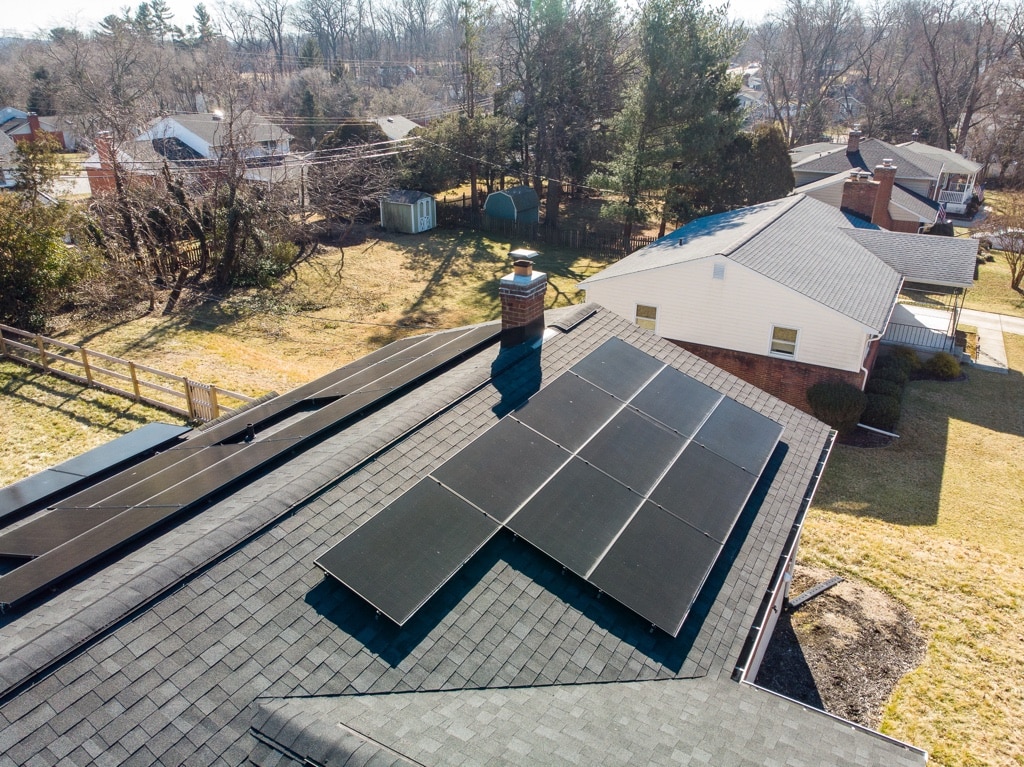
Solar panels in York PA will experience the range of seasons that the area has throughout the year. Pennsylvania has cold winters and warm, sunny summers, so the solar panels must be able to operate efficiently in all seasons. While this change in season brings about different types of weather conditions that the solar panels can easily handle, the main concern for your solar panels is the fluctuation of temperatures.
Temperature
The efficiency of electronics is affected by extreme temperatures and solar panels are no exception. In the colder months, solar panels in York PA will actually increase their efficiency. This is because the electrons in the panel are at low energy in cold temperatures and are activated by the high energy, warm sunlight. When there is a greater difference between these two voltages, more energy can be produced. The opposite occurs during warmer climates but usually comes with increased sunlight, negating the effect. If your solar panels are connected to batteries, it is best to store those batteries in a place that does not get affected by the outdoor temperature as drastic changes in temperature can lower their charge.
Make the Switch to Solar Panels in York PA Today
Making the switch to clean and renewable solar energy is a decision that will benefit your wallet, your home, and the planet. If you are ready to lower your monthly energy bill and reduce your carbon footprint, reach out to the team at Lumina Solar. Our solar representatives will work closely with you to discuss your solar options and payment plan. Call or contact us today to begin your conversion to green, solar energy.


